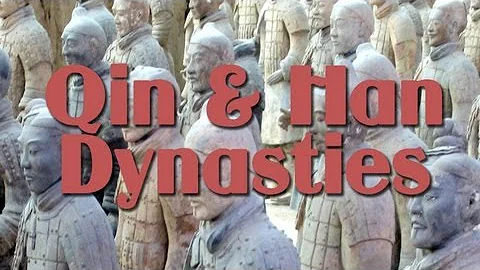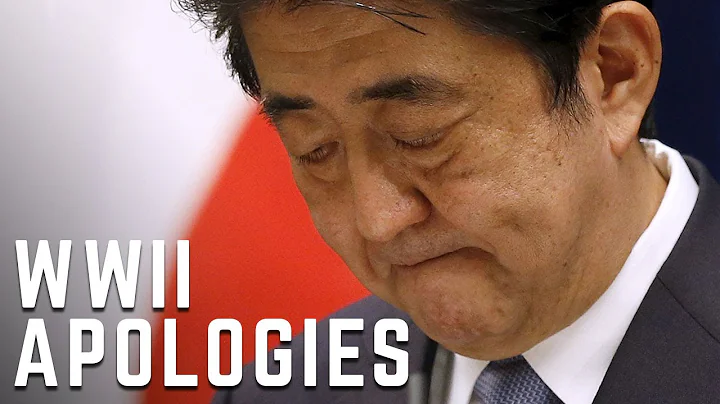
In the sixth year of Jingyao of the Shu Han Dynasty (AD 263), the Shu Han regime founded by Liu Bei perished.
When a country dies, a group of the country’s old dignitaries will naturally be unlucky, and Shu Han is no exception.
Typically, the family of Guan Yu, the patriarch of the Shu Han , was exterminated after the fall of the Shu Han. Historical records: "Pang Dezihui followed Zhong and Deng to conquer Shu, and when Shu was defeated, the Guan family was completely wiped out."
Guan Erye His family was exterminated, which made the people who admired him in later generations extremely regretful.
Judging from the few short sentences recorded in the history books, this seems to be a revenge incident involving an individual to avenge his father.
At the beginning, Guan Yu launched his troops in the Northern Expedition, fought with the Cao Wei army, and captured Cao Wei general Pang De. Pang De was unwilling to surrender, so Guan Yu beheaded him.
Therefore, when the Shu Han regime fell, Pang De's son Pang Hui used this as an excuse to eliminate the Guan Yu family.
For a family that has lost its country, this fate seems normal.
However, things are not that simple. The destruction of the Guan Yu family was not just a personal revenge incident. Pang Hui had no chance to retaliate against the Guan family.

The final genocide of the Guan family was related to the relatively complicated situation at the time. It was part of the Cao Wei regime's warning strategy to eliminate diehards in order to stably take over the Shu Han regime.
And this strategy was decided because of an accident.
After the fall of the Shu Han Dynasty, the Guan Yu family was originally safe. Initially, the strategy of the Wei State was to accept it peacefully and try not to use the knife.
In such a war to destroy the country, there must have been plans for how to deal with the various influential families in the Shu Han regime before sending troops.
How to deal with stubborn resisters? How to deal with voluntary surrender? Wait, the actual person in charge of the Cao Wei regime Sima Zhao must have given an explanation to the general who commanded the troops at the front.
When Deng Ai came to Chengdu, Liu Chan took the initiative to surrender. Therefore, whether it was the royal family or the relevant powerful families, it should be done according to the initial surrender plan, and there would be certain preferential treatment.
have all surrendered voluntarily, and it makes no sense to use the knife to exterminate the tribe. It will not help in stably taking over the Shu Han regime.
Cao Wei's original plan was to move all families, including the Liu family, that could exert influence on the areas formerly occupied by the Shu Han, out of Shu, including the Guan family.
Moreover, when the Shu Han Dynasty first fell, Pang De's son Pang Hui was not in Chengdu. He followed Zhong Hui to fight with the Wei army. When Deng Ai accepted Liu Chan's surrender, Zhong Hui's troops were still stopped by Jiang Wei Jiange.

If there are no accidents, by the time Pang Hui follows Zhong Hui to accept Jiang Wei's surrender, and then arrives in Chengdu with Zhong Hui's troops, the situation in Shu Han will have stabilized.
In order to ensure stability, neither Deng Ai nor Zhong Hui, including Sima Zhao who was far away in Luoyang , would allow Pang Hui to trouble the Guan family. Otherwise, they would force the Shu Han surrender officials to fight to the death.
So as mentioned earlier, Pang Hui had no chance to seek revenge from the Guan family to avenge his father. Even if he wanted to avenge his father, he would wait until the Guan family moved to a new place of residence and then use his power within Cao Wei to torment the Guan family.
A gentleman's revenge is never too late. No matter how much hatred Pang Hui has in his heart, he must obey the overall situation.
Pang Hui had the opportunity to attack the Guan family in Chengdu, thanks to Zhong Hui and Jiang Wei.
After Liu Chan surrendered to Deng Ai in Chengdu, the situation at that time was very complicated. There was a former Shu Han force ready to move, which was the Shu Han military force headed by Jiang Wei.
Jiang Wei was not willing to surrender. After he learned that Chengdu had surrendered and received an edict from Liu Chan asking him to surrender, he was forced to lead his troops to surrender to Zhong Hui.

When Jiang Wei surrendered, his generals and sergeants were still aggrieved. "In response to the order of the empress, he surrendered his armor and met in front of the Fu army. The officers and soldiers were so angry that they drew their swords and chopped stones."
Jiang Wei's troops still had the strength to resist, but they were forced to surrender. No one could bear it. As long as someone took the lead, they could fight Cao Wei's army again at any time.
It happened that Zhong Hui wanted to cause Sima's rebellion at that time, so Jiang Wei actively cooperated with Zhong Hui, preparing to take advantage of the chaos to restore Shu Han.
With this idea, Jiang Wei would definitely contact those generals or families who were unwilling to surrender, including
, to actively prepare. Both Liu Chan and Jiang Wei contacted him. According to historical records, he wrote a special letter to Liu Chan, asking Liu Chan to wait for the restoration of the country.
As for whether Jiang Wei contacted the Guan family, there is no record in the history books, but whether Jiang Wei contacted him or not has not been recorded. It's not important anymore.
Zhong Hui's rebellion finally failed, causing a chaos in Chengdu. Zhong Hui and Jiang Wei were both killed by the Wei army.

Because of Zhong Hui's rebellion, Cao Wei's actual person in charge in Chengdu at the time was Wei Guan and the army generals. With an excuse to attack the powerful families of the former Shu Han Dynasty,
before Zhong Hui's rebellion, Deng Ai, the commander of the other two armies of Cao Wei's expedition to Shu, was also killed on suspicion of rebellion.
The commanders of both armies were killed. Cao Wei's cronies were also killed. There was a certain degree of instability in Cao Wei's army when he entered Shu, which directly affected the acceptance of Shu Han's regime and territory.
In this unstable situation, the original peaceful acceptance strategy no longer existed. If you want to suppress some unwilling forces or families in the original Shu Han regime, you can only deal with it with bloody methods.
Zhonghui rebelled. Jiang Wei and other former Shu Han military forces were involved. Some have evidence, and some have no evidence. No one knows which families are involved in this matter.
But for Cao Wei, evidence is not important. Since there is trouble, he must suppress it and take advantage of the trouble to clean up some die-hards and their families. Lost.
The Guan family may have been regarded as diehards who participated in the Zhonghui rebellion, or it may be that Pang Hui took the opportunity to identify the Guan family as a diehard who participated.

This may be Pang Hui. The real reason why the Guan family was killed in Chengdu was in the name of avenging his father. Without the Zhonghui Rebellion, the Guan family might have survived.
In Chengdu at that time, it was not only the Guan family that was destroyed, but also many important officials of the Shu Han Dynasty. All their families were wiped out, such as the Jiang Wan family, the Zhang Yi family, etc., and the family of Liu Chan's eldest son, the former Shu Han prince Liu Xuan , was also killed.
These exterminated important families of the Shu Han Dynasty may not necessarily have participated in the Zhong Hui and Jiang Wei rebellions, but Cao Wei needs them to die in order to prevent another Jiang Wei from appearing.
Killing Liu Chan's son Liu Xu was a warning to Liu Chan not to act rashly. The destruction of the Guan family, Jiang family and other families was a warning to the remaining Shu Han families to be honest and not to have any thoughts of resistance.
Liu Xu is a member of the royal family, the Guan family is the representative family of the elder group in the Shu Han regime, and the Jiang family is the representative family of the Jingzhou group in the Shu Han regime.
If they had not actively participated in the rebellion of Zhong Hui and Jiang Wei, then Cao Wei would have selectively eliminated them and severely warned the rest of the Shu Han regime that there were still rebellious families.

This is part of the strategy of the Cao Wei regime, or the leader Sima Zhao, to stabilize the former Shu Han territory after the rebellion of Zhong Hui and Jiang Wei. Everything is to receive the fruits of victory as smoothly as possible.
Of course, if there had been no Zhonghui Rebellion, this kind of purging behavior would not have been necessary. Cao Wei's original strategy was to only carry out large-scale migration. If it could be successfully accepted, there would be no need to make it so bloody.
In the end, tens of thousands of people in the original Shu Han regime were still moved out of Shu, but the Guan Yu family was no longer among them.
Reference: "Three Kingdoms"









![Chu-Han Rebels vs Imperial Qin [ENG SUB] 刘邦项羽苦战秦军 - DayDayNews](https://i.ytimg.com/vi/n8W7D3CAp3o/hq720.jpg?sqp=-oaymwEcCNAFEJQDSFXyq4qpAw4IARUAAIhCGAFwAcABBg==&rs=AOn4CLCEhYn2GhSDu1BEYRdwg6cYFSQsVQ)


![[Anti-Japanese Movie] The Japanese army massacred the village and was killed by the Chinese army! - DayDayNews](https://i.ytimg.com/vi/ubibv_QSbZ4/hq720.jpg?sqp=-oaymwEcCNAFEJQDSFXyq4qpAw4IARUAAIhCGAFwAcABBg==&rs=AOn4CLCtmL15ByBtAntj3jc-n_w_Vslqjw)
![[Anti-Japanese Movie] Chinese army raided the Japanese army and destroyed the biochemical base! - DayDayNews](https://i.ytimg.com/vi/TR0ofJCrhAc/hq720.jpg?sqp=-oaymwEcCNAFEJQDSFXyq4qpAw4IARUAAIhCGAFwAcABBg==&rs=AOn4CLDawSMRXC6HLN38X3EkSTl9yYlGqA)







